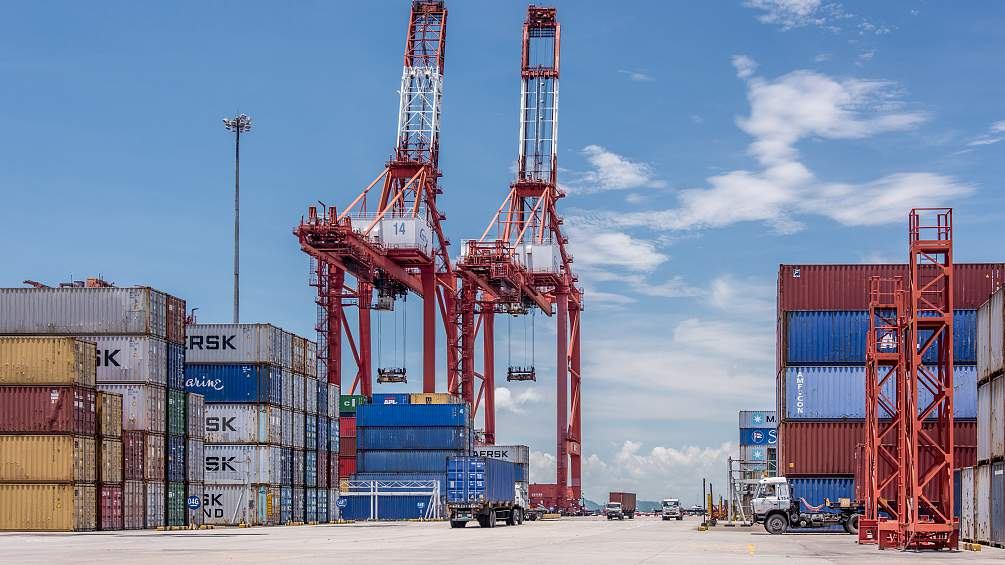

U.S. professor Daniel W. Drezner wrote in a letter to President Donald Trump that China will not make concessions similar to Mexico when talking about the trade friction between the world's largest two economies.
Drezner, a professor of international politics at Tufts University, said the U.S. holds significant economic leverage over Mexico whose economy is now catering to the U.S. market and a supply chain dominated by U.S. firms, Washington Post reported on June 11.
China will not make similar concessions. China is a great power, Drezner explained in the letter.

U.S. soldiers walk next to the border fence between Mexico and the United States, Ciudad Juarez, Mexico, April 3, 2019. /VCG Photo
Drezner said the harmful effects of slapping tariffs could not be subdued by measures like tax cuts or interest rate cuts.
"Prolonged sanctions and trade wars will inevitably lead to a drying up of foreign and domestic investment", Drezner said.
Last week, U.S. President Trump dropped the tariff threats on billions of U.S. dollars of Mexican imports after reaching a deal o to curb the flow of migrants into the U.S. from Mexico.
Meanwhile, 73 percent of economists said they don't expect any long-term gains from the Trump administration's trade-tariff policy will be enough to offset short-term damage to the U.S. economy, according to the latest monthly survey of economists by the Wall Street Journal.
Gus Faucher, the chief economist at PNC Financial Services Group, said he expects little long-term economic gain from the trade-tariff policy concerning the damage from increased uncertainty and productivity growth, the Wall Street Journal reported.
The survey showed the probability of a recession in the next 12 months is 30.1 percent, the highest level since late 2011, and economists saw trade or tariffs as the biggest downside risk to their forecasts.

Copyright © 2018 CGTN. Beijing ICP prepared NO.16065310-3
Copyright © 2018 CGTN. Beijing ICP prepared NO.16065310-3